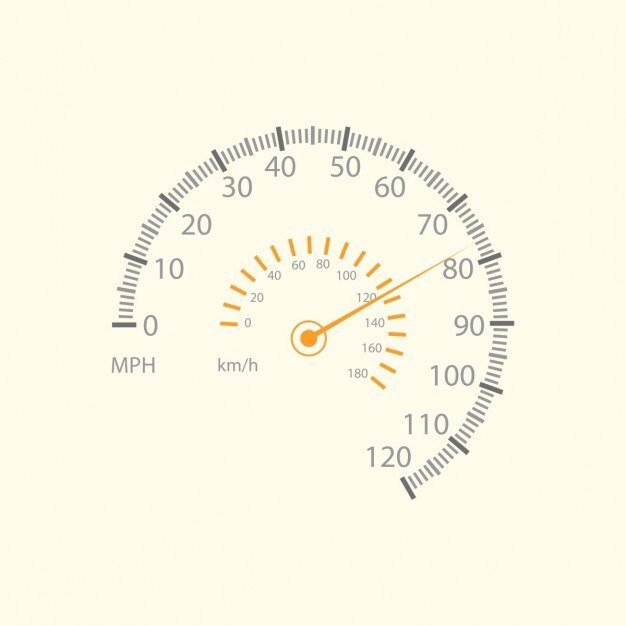Gauge, in its simplest form, refers to a measurement or assessment of something. It helps quantify or determine the extent, size, dimension, or capacity of an object or concept. Synonyms for gauge include measure, assess, calculate, evaluate, and determine.
In the realm of linguistics and language usage, gauge plays a crucial role in conveying accurate information. Whether it’s determining the thickness of a wire or assessing customer satisfaction levels through surveys and feedback forms – gauge is an indispensable tool that allows us to make informed decisions based on objective data.
Table of Contents
Exploring the Meaning of Gauge and Synonyms
Gauge is a versatile word that can have multiple meanings depending on its context. In general, it refers to a measuring instrument used to determine dimensions or quantities. It can also refer to the thickness or diameter of something, like a wire or sheet metal. Additionally, gauge can be used metaphorically to describe someone’s ability or comprehension level.
Synonyms for gauge include measure, indicator, meter, scale, and dial. These words all convey the idea of quantifying or assessing something accurately. Understanding these synonyms can help expand your vocabulary and express yourself more precisely in various situations where gauge is applicable.
Words Associated with Gauge in the Dictionary
Exploring When it comes to understanding gauge, it’s important to explore the words that are closely associated with it. In the dictionary, you’ll find terms like measure, calculate, assess, and determine. These words all relate to gauge in different ways.
Measure refers to obtaining a precise or accurate value of something, while calculate involves using mathematical operations to determine a result. Assess focuses on evaluating or judging a situation or object based on specific criteria, and determine entails making a decision or finding an answer through investigation or analysis.
These associated words provide additional context for understanding gauge and its various applications. By delving into their definitions and grasping how they relate to gauge, we can gain a more comprehensive perspective on this versatile term.
Practical Applications of Gauge
Understanding the practical applications of gauge can help us navigate various industries and fields. One common application is in manufacturing, where gauges are used to measure dimensions and ensure precision in production processes. In the automotive industry, for example, engineers rely on gauge measurements to guarantee that parts fit together seamlessly.
In addition to manufacturing, gauge finds its utility in construction as well. Builders use gauges to assess distances and angles accurately, ensuring precise placement of materials during construction projects. Gauges also play a crucial role in engineering disciplines such as civil engineering and mechanical engineering by helping professionals monitor pressure levels, temperatures, or fluid flow rates. These applications demonstrate how essential gauge is for maintaining accuracy and efficiency across different sectors.
Understanding Different Word Forms and Variations
When it comes to the word “gauge,” there are various forms and variations that you should know. First off, let’s talk about its verb form – “to gauge.” This means to measure or estimate something, typically with great accuracy. For example, you might say, “I need to gauge the amount of paint needed for this room.”
Another variation is the adjective form – “gauged.” This refers to something that has been measured or estimated using a gauge. For instance, you could say, “The gauged temperature of the oven was just right for baking cookies.”
It’s important to understand these different word forms and variations as they can help you use the term “gauge” more accurately in your writing or conversations. By knowing how to properly use each form, you can effectively communicate your thoughts and ideas with precision.
In addition to these variations on the verb and adjective forms of “gauge,” there are also other related words worth exploring. These include terms like gauging (present participle), gauges (plural noun), ungauged (adjective), ungaugeable (adjective), and many more.
Being familiar with these different word forms will not only expand your vocabulary but also enable you to express yourself more clearly when discussing measurements or estimations. So next time you encounter the word “gauge” in its various forms, be confident in using them correctly!
Unscrambling Words Related to Gauge
When it comes to the word “gauge,” there are many variations and combinations that can be formed. By unscrambling these words, we can gain a deeper understanding of the different aspects and applications of gauge.
One common variation is “egua,” which is an anagram of gauge. This highlights how letters within the word can be rearranged to form new words with different meanings. Another interesting combination is “ague,” which refers to a type of fever characterized by chills and shivering. These examples demonstrate the versatility and complexity of the word gauge in various contexts.
Exploring Words Starting with “G” and Ending with “E”
When it comes to words related to gauge, there are plenty of interesting options that start with the letter “G” and end with the letter “E.” One example is “gauge,” which is a key term in our discussion. Other words worth exploring include “gratuite,” meaning something given or done free of charge, as well as “guarantee,” referring to a promise or assurance. These words not only expand our vocabulary but also provide additional context for understanding different aspects of gauge.
Moving on, we have words like “game,” referring to an activity or sport often played for amusement or competition. Another word starting with G and ending in E is “gate,” which can mean an entranceway or barrier used for access control. By examining these various word choices, we gain insight into how the concept of gauge intersects with other areas of language and everyday life.
Exploring Word Length and Variations
Word length and its variations play a crucial role in understanding the nuances of the term “gauge.” By analyzing the length of words associated with gauge, we can gain deeper insights into its meaning. From shorter words like “age” and “ace” to longer ones such as “augment” and “aggravate,” each word brings a unique perspective to our understanding of gauge. These variations highlight how different aspects contribute to the overall concept, providing us with a comprehensive view.
Furthermore, examining word length allows us to uncover patterns within the vocabulary related to gauge. Some words are concise yet impactful, while others provide intricate details about measurements or assessments. Understanding these variations equips us with a broader range of language tools for expressing ourselves accurately when discussing gauge-related topics or engaging in conversations about this multifaceted concept.
Gauge in Different Contexts
Customer Support and Company Information
In the world of customer support, gauge can refer to measuring customer satisfaction levels. By using various metrics and feedback systems, companies can gauge how well they are meeting their customers’ needs. This allows them to make informed decisions on improving their products or services.
Staying Informed in the Field of Gauge
Gauge is also a term used in industries that rely on accurate measurements, such as engineering or manufacturing. Professionals in these fields use specialized tools and instruments to gauge dimensions, thicknesses, pressures, or other physical quantities. Staying up-to-date with the latest advancements and techniques is crucial for those working with gauges to ensure accuracy and precision in their work.
Customer Support and Company Information
When it comes to customer support and company information, gauge plays a crucial role. Companies need to gauge the needs and expectations of their customers in order to provide effective support. By understanding their concerns, queries, and feedback, companies can tailor their services or products accordingly.
Additionally, having accurate company information is essential for building trust with customers. A well-maintained website that provides clear and concise information about the company’s history, values, team members, and contact details can instill confidence in potential customers. It also serves as a resource for existing customers who may need assistance or want to learn more about the company.
By prioritizing customer support and ensuring comprehensive company information is readily available, businesses can establish strong relationships with their audience while fostering transparency and credibility.
Staying Informed in the Field of Gauge
In the ever-evolving field of gauge, staying informed is key to success. With new technologies and advancements constantly emerging, it’s essential to keep up with the latest developments. One way to stay informed is by subscribing to industry newsletters and publications. These sources provide valuable insights, expert opinions, and updates on the latest trends in gauge technology.
Additionally, attending conferences and trade shows related to gauge can be highly beneficial. These events offer opportunities for networking with professionals in the field, learning about cutting-edge products and research, and gaining a deeper understanding of current industry challenges. By actively seeking out information through these channels, professionals can stay ahead of the curve in this dynamic field.
Debunking Common Confusions with Gauge
One common confusion surrounding the word “gauge” is the spelling. Many people mistakenly write it as “guage.” However, the correct spelling is actually “gauge.” Remember to always use the letter “a” instead of the letter “u” when referring to this term.
Another area of confusion is how to properly use gauge in business writing. When using gauge in a sentence, make sure it aligns with your intended meaning and context. For example, you might say, “We need to gauge customer satisfaction levels,” instead of saying, “We need to measure customer satisfaction levels.” Understanding these nuances will help ensure clear and effective communication in written form.
Which is Correct: “Guage” or “Gauge”?
One common confusion when it comes to the word gauge is its spelling. Many people often wonder if they should spell it as “guage” instead. However, the correct and widely accepted spelling of this word is actually “gauge.”
The word gauge refers to a measurement tool or a standard unit of measurement. It can also be used figuratively to describe an estimate, judgment, or level of something. So, whether you’re talking about measuring thickness, assessing someone’s abilities, or determining the quantity of something, remember that “gauge” is the correct spelling.
Despite the similar pronunciation between guage and gauge, there is no alternate form for this particular word in English. Using “guage” instead would be considered incorrect and may lead to confusion among readers and listeners. To ensure clarity in your writing and communication, stick with the proper spelling – gauge!
Writing for Business with Gauge
Writing for business with gauge requires a clear understanding of measurement and precision. In the business world, gauge is often used to evaluate performance, track progress, and make informed decisions. Whether it’s analyzing sales figures, monitoring customer satisfaction levels, or assessing productivity metrics, having an accurate gauge can provide valuable insights.
When writing for business with gauge in mind, it’s important to present information in a concise and objective manner. Use data-driven language to support your claims and ensure that your content is relevant to the specific needs of your target audience. Additionally, consider using visual aids such as charts or graphs to help illustrate your points effectively.
Remember that writing for business involves conveying complex concepts in a simple yet informative way. Avoid jargon or technical terms that may confuse readers who are not familiar with the subject matter. Instead, strive for clarity and readability by using plain language and providing clear explanations.
Incorporating gauge into your business writing can enhance the credibility of your content while helping you communicate key messages accurately and persuasively. By utilizing this powerful tool effectively, you can ensure that your written materials resonate with readers and drive success in the corporate world.
Gauge in the English Language
Exploring Gauge is a versatile word that holds different meanings and uses in the English language. As a noun, it refers to a measurement or standard of comparison. For example, we use gauge to measure the thickness of wires or the pressure in a tire. It can also be used as a verb, indicating an act of estimating or determining measurements.
In addition to its literal sense, gauge has metaphorical applications as well. We often hear expressions like “to gauge someone’s reaction” which means to assess their response or “to gauge public opinion” referring to measuring people’s views on certain topics. Its adaptability makes it an indispensable part of our everyday communication toolkit.
Exploring Gauge as a Noun
Gauge, as a noun, refers to a measuring instrument or device used to determine the size, capacity, or quantity of something. It can also mean the thickness or diameter of an object. For example, in the context of knitting needles or shotgun barrels, gauge is used to indicate their size. Additionally, gauge can refer to a standard for measurement or comparison. In this sense, it serves as a benchmark against which other things are evaluated.
When discussing gauge as a noun in relation to measurement instruments and devices, examples include pressure gauges that measure fluid pressure in mechanical systems and fuel gauges that indicate the amount of fuel remaining in a vehicle’s tank. The term “gauge” is often used interchangeably with “meter,” particularly when referring to devices that measure electrical current (ammeter) or voltage (voltmeter). These various types of gauges play crucial roles across industries such as engineering and manufacturing.
Exploring gauge as a noun allows us to understand its significance in quantifying measurements accurately and consistently. Whether it pertains to physical dimensions like thickness or capacity evaluation using specialized instruments like meters and indicators – gauge plays an essential role across diverse fields where precise measurement is critical for quality control and operational efficiency purposes.
Helpful Tools and Resources
When it comes to understanding and working with gauge, having access to helpful tools and resources can make all the difference. Thankfully, there are numerous resources available that can assist in your journey of mastering this concept.
One essential tool is an online dictionary or thesaurus, which can provide definitions and synonyms for gauge-related terms. Additionally, specialized websites and forums dedicated to engineering or industrial topics often offer valuable insights and discussions on gauge applications. Combining these resources allows you to broaden your knowledge base and stay informed about the latest developments in the field.
To further enhance your understanding of gauge, consider utilizing educational videos or tutorials found on platforms like YouTube. These visual aids can clarify complex concepts by providing step-by-step demonstrations or explanations from industry experts. Joining professional organizations relevant to your area of interest can give you access to a network of peers who may have additional tools or resources at their disposal.
Remember, continuous learning is key when it comes to grasping intricate subjects like gauge theory!
Multilingual Perspectives on Gauge
Understanding gauge becomes even more fascinating when we explore its interpretation in different languages. In French, the word “jauge” refers to a measuring instrument or a capacity indicator. The Spanish term “calibre” also denotes measurement, particularly in firearms and ammunition.
In German, “Messgerät” is used to describe a gauge or measuring device. Meanwhile, the Italian word for gauge is “misuratore,” which emphasizes the act of measuring or assessing something accurately.
These multilingual perspectives on gauge highlight the universal need for measurement and assessment across various cultures and industries. No matter what language you speak, understanding how to effectively use gauges is crucial for accurate measurements and assessments.
Helpful Tools and Resources
To dive deeper into the world of gauges, there are several tools and resources available that can enhance your understanding:
1. Online Dictionaries: Use online dictionaries such as Merriam-Webster or Oxford English Dictionary to explore definitions, synonyms, antonyms, and related words associated with gauge.
2. Thesaurus: A thesaurus like Thesaurus.com can help you find alternative words that have similar meanings to expand your vocabulary.
3. Industry-Specific Websites: Visit industry-specific websites related to engineering, manufacturing, or any other field where gauges are commonly used. These websites often provide valuable insights into specific applications of different types of gauges.
4. Books: Look for books written by experts in fields like metrology (the science of measurement) or engineering that delve into detailed explanations about gauges.
5. Forums and Communities: Join online forums or communities dedicated to discussions about measurements and gauging techniques where professionals share their experiences.
By exploring these resources with an open mind while keeping up with technological advancements in metrology systems will equip you with knowledge essential for using various types of gauges effectively.
So whether you’re using a simple ruler at home or interpreting complex readings from sophisticated instruments, gauge plays a significant role in our daily lives





